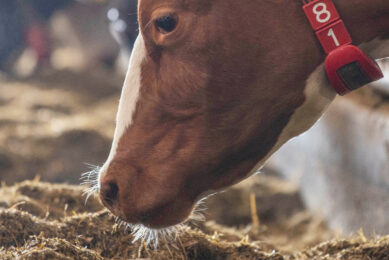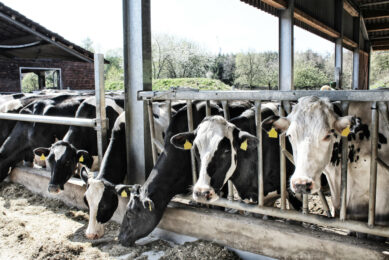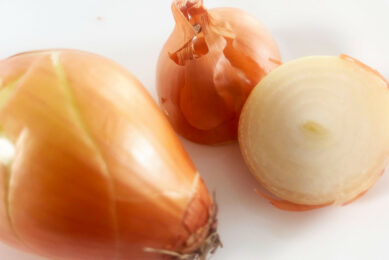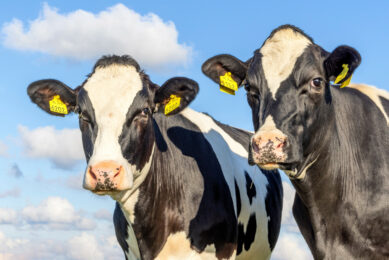Dealing with industry challenges at the GFSS
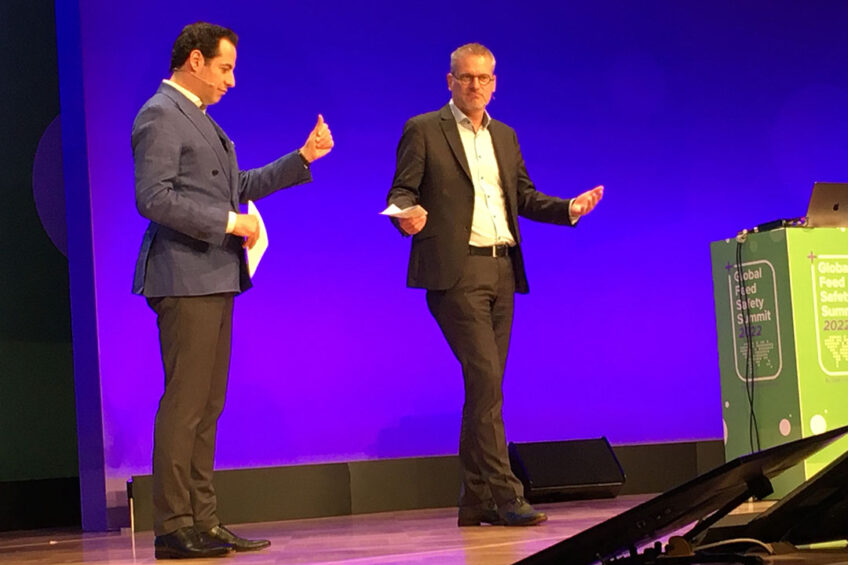
“We cannot take feed safety for granted. We have to keep developing our safety control schemes and we have to be prepared for the demands beyond tomorrow.” That was one of the key messages delivered by Roland van der Post, Global Feed Safety Summit host and GMP+ International managing director.
In his round-up of the 3-day summit, held in Berlin, Germany, from 6-8 April 2022, he looked back on a fruitful gathering of key industry players. A face-to-face event to set the feed agenda for the years to come.
Feed without safety is poison
“Feed without safety is not feed, it is poison”. Those words, which were spoken by one of the participants at the 2022 Global Feed Safety Summit, couldn’t be more true. If anything, the 3-day event made clear that feed safety is vital and also needs constant attention and further development. Industry leaders applied their brains, discussed the latest innovations and trends and came up with a list of actionable results.
“We have shown that the feed industry is always at the forefront and that is exactly what we need, going forward,” commented Van der Post. Under his guidance, a number of developments and pressing issues were highlighted. “We heard experts on new feed materials, new technologies and had intense discussions with one another about our carbon footprint and sustainability efforts. Our core business is feed safety, of course. That said, we have the framework, the connections and the expertise in our certified companies to facilitate more than just feed safety.”
Huge production increase
It was first speaker, Ruud Tijssens, chair of the International Feed Industry Federation (IFIF), who focused on the challenges we all face. According to Tijssen, antimicrobial resistance still is a huge problem. “We tend to look at this from a Western perspective but the world is far bigger than that. In the developing world, the dynamics are different, so we have to be aware of the issue of antibiotics as in 45 countries around the world it is still common practice to use feed antibiotics preventatively.”
The same difference in perspective can be seen when it comes to increasing animal protein production. “Compared to 2010, we will have to produce 1.6 times more animal protein by 2050 to feed the global population. This is not my personal vision, it is based on the facts as we know them today. Despite our ‘green’ politics, we have to produce more meat. In the West, we tend to say that meat alternatives or even insects might be the way forward but these don’t grow from air, they have to be fed, too.”
Plant protein and animal proteins hand in hand
Tijssen was supported in this by Professor Leo den Hartog of Wageningen University. “In the next 40 years, we will have to produce more food than in the last 40,000 years combined. To achieve that, alternative proteins will not be in competition with animal protein. We need all the protein we can possibly find to be able to feed the world,” said Den Hartog. In his view, to improve sustainability and get the most out of the one planet we have, plant protein and animal protein will go hand-in-hand.
“In our work at the university, we modelled the ideal situation for the use of resources. The basis for that is that all plant protein which is fit for consumption is prioritised for humans. It is then the co-product valorisation by animals that will supply our meat. Apart from this, grasslands not fit for food production will feed some of our animals. In the planet optimum scenario, 40% (50 g/person/day) of our protein will be animal protein.” He added that going vegan is making the protein issue worse, not better.
Sustainability in mind
A brief survey among the participants at the Global Feed Safety Summit showed that no less than 42% see climate change as the challenge with the highest impact on the feed industry. The second highest was the growing population (24%), followed by legislation (16%) and feed safety culture (10%). The surveyed challenges were addressed in a roundtable discussion with Nick Major (GLFI), Alexander Romme (EFFPA), Maria Reyes Gutierrez (Nutrition International) and Heinrich Katz (Hermetia). The panelists concluded that the drive towards a more sustainable future isn’t being slowed by the industry, on the contrary.
Improving industrial processes could be speeded up, but it is legislation that puts on the brakes. Katz: “It took us nine years to get approval to include insects in the feed and that is just too slow. And it is difficult to understand because it’s pure nature. Insects upcycle waste into valuable protein, it’s a no-brainer for increasing our sustainability.”
Major added: “We need to be enabled by legislators that set certain boundaries and let us get on with it, unfortunately, they sometimes tell us how to get things done”. He is, however, positive that the industry has a credible voice and is able to provide solutions and answers to the topics society and legislators ask of it. “We all realise that sustainability shouldn’t be a business model, it’s precompetitive, our license to produce.”
3 agenda points
For the duration of the Summit the organising committee explored three topics which will have an impact in the years to come. Van der Post: “I am proud that we reached such a concrete result.” The first point concerned antimicrobial resistance: a crucial topic as it is expected that more people will die from antibiotic resistant bacteria than from cancer in the near future. “We have access to expert committees to make progress in this field.”
The second point on the feed agenda addressed the sustainability topic. “Sustainability per se is not at the core of GMP+ International but we should connect and share data to be able to show our industry’s sustainability efforts. So we will team up with GFLI and we will do that soon, this summer, to explore how our knowledge and certification can play a role in sustainability.” The third actionable point on the agenda touched upon blockchain technology. “The challenge that we will pick up in 2023 with Covantis is: if and how we can add feed safety to the blockchain now in use in feed material handling.”
Van der Post concluded: “In our ‘pressure cooker’ environment in the wonderful city of Berlin we managed to take the first steps together towards organising commitment. You couldn’t wish for more as a summit host.”
Join 13,000+ subscribers
Subscribe to our newsletter to stay updated about all the need-to-know content in the dairy sector, two times a week.



